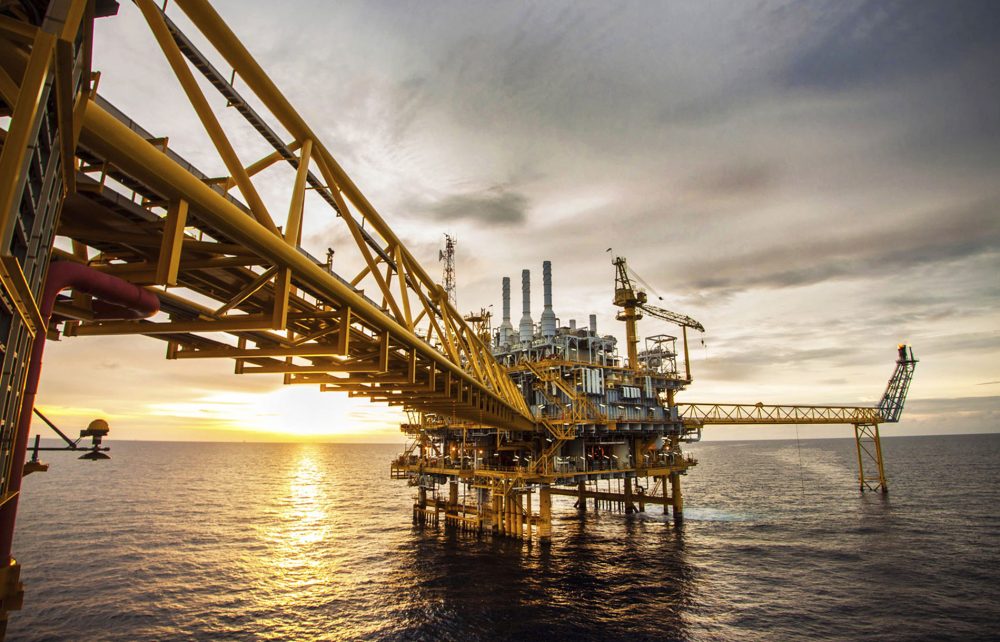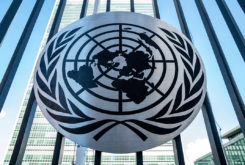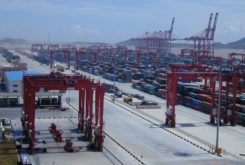Oil production is a decades-old dream for São Tomé and Príncipe, especially for its cash-starved government. The interest of oil companies in its Joint Development Zone (JDZ) with Nigeria peaked with record oil prices before 2014, and then faded. But new developments in the country’s Exclusive Economic Zone (EEZ), which neighbour those of important oil-producing countries like Equatorial Guinea and Gabon, have made major oil companies look twice.
Sustaining the approaches in the São Tomé EEZ is the recent rise in international oil prices, currently above US$60 per barrel, as well as the positive outlook for São Tomé and Príncipe’s potential in terms of natural gas, according to our sources.
The sale of block 2 remains open, with indications of interest by BP (UK) and Total (France) in the acquisition of a stake. Regarding BP, the main interest is related to natural gas.
Total is particularly active and has been approaching Portuguese oil company Galp Energia for partnerships. The interest of the French oil and gas giant also extends to unused blocks in the JDZ.
Contacts and negotiations are ongoing between São Tomé’s National Petroleum Agency (ANP) and other oil companies.
Mobilisation of oil companies in the EEZ improve the medium- and long-term prospects for oil production in the country.
In the short term, they should translate into the signature of new contracts and payment to the state of the respective signature bonuses, funds deeply needed by the government in the context of the current financial crisis.
Since January, the ANP has a new director, Olegário Pires Tiny, who in the past headed the Joint Development Authority (JDA) of the JDZ and was a professor of oil and gas legislation at Universidade Lusíada in São Tomé.
Major recent developments include ongoing drilling work by Kosmos Energy (US) in the EEZ, after assessment of the seismic data acquired there around two years ago, in an area of 16,000 sq km.
Already presented to the government were the initial results of the seismic survey carried out in blocks 5, 6, 11 and 12 of the EEZ, with positive indications. Galp Energia operates block 6 with a 45 per cent stake (equal to Kosmos) and holds 20 per cent in the remaining three blocks led by Kosmos; the state retains 10–15 per cent of each site. Kosmos’ drilling plan, which has been giving positive indications, will proceed until 2020.
Block 1 of the São Tomé EEZ, tendered in August 2018 by the previous Trovoada government, had from the beginning firm interest of Total. Direct negotiation with the government culminated in March, with the signing of a production sharing agreement for the block, giving a majority of the company (55%) to Total, with Sonangol (30%) and the state of São Tomé and Príncipe (15%) as partners.
The duration of the contract is 28 years, with 8 years for the research phase (3D seismic acquisition and drilling) and 20 years for the production phase. The state will receive a signature bonus of US$2.5 million, as well as US$1 million annual subsidies to social projects.
The country now has 10 oil blocks under a production sharing agreement: 1 (Total), 2 (Sonangol), 3 (Oranto), 4 (ERHC), 5, 11 and 12 (Kosmos Energy), 6 (Galp Energia), and 10 and 13 (BP).
The Chinese-Angolan mixed capital company Sinoangol was expropriated from block 2 by the ANP in December 2016, due to breach of contract, and arrears of tax and payments to the state. It came to hold 90 per cent of block 2 in 2013, but later ceded 30 per cent to the Angolan half of the partnership, Sonangol, which became operator.
The base economic model used by the ANP for the EEZ foresees a minimum value of US$70 per barrel so that the operation is commercially viable. The initial estimate, made by consultants Aupec in 2008, was updated and confirmed in 2014 by the NPD (Norway).
By contrast, the Joint Development Zone (JDZ) with Nigeria has remained idle after no commercially viable quantities were identified in the six drills made in recent years, including by Chevron and Total.
But in March, Nigeria and São Tomé and Príncipe, through their joint oil zone organisation, signed an oil production sharing agreement with Total E&P Nigeria Limited, foreseeing prospection for oil in three blocks.
According to the company, Total E&P will take on 100 per cent of the financing, but may seek partners as discoveries are made.
The estimated reserves of the blocks – 7, 8, and 11 – are unknown. Total will be the first to explore the area, with Total E&P Managing Director Nicolas Terraz saying the company will invest more than US$10 million to acquire 3D seismic data of oil and gas prospects in the blocks.
The previous government had sought to revive activities in the JDZ but approaches to Nigerian President Muhammadu Buhari were unsuccessful.
In fact, a high-level Nigerian delegation headed by Foreign Affairs and Communities Minister Urbino Botelho visited São Tomé in August 2018 and demanded the repayment of São Tomé’s debt on JDZ’s expenses. The previous government made a commitment to submit a loan repayment proposal to Nigeria, to be considered and signed at a meeting of the Joint Ministerial Council, the body overseeing the JDA.
The recent production sharing deal may kick off a revitalisation of the JDZ after years of idleness, according to senior JDA officials, as the presence of Total and rising oil prices boost confidence in the zone. It may also “serve to consolidate the existing cordial relationship” between the two countries, said Acting Chairman of the JDA Dr Almajiri Geidam.




